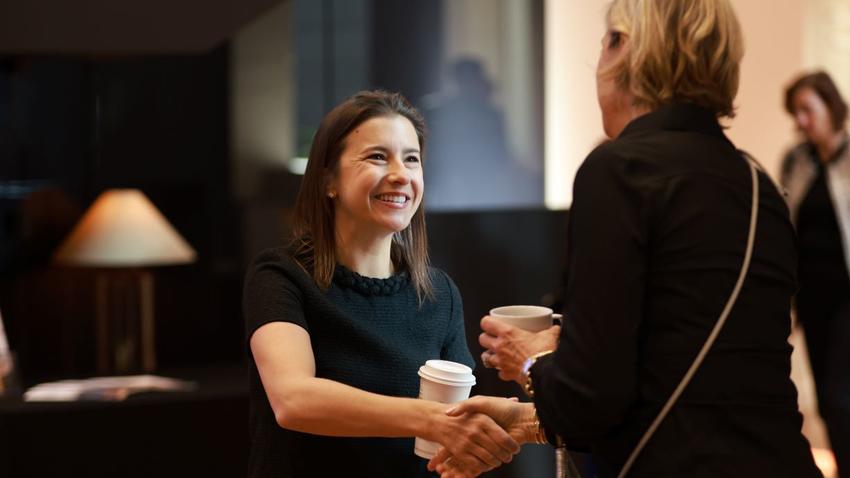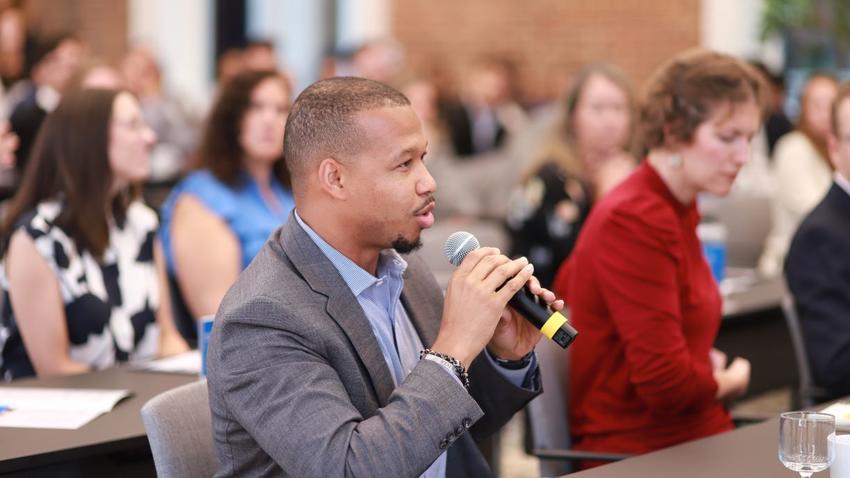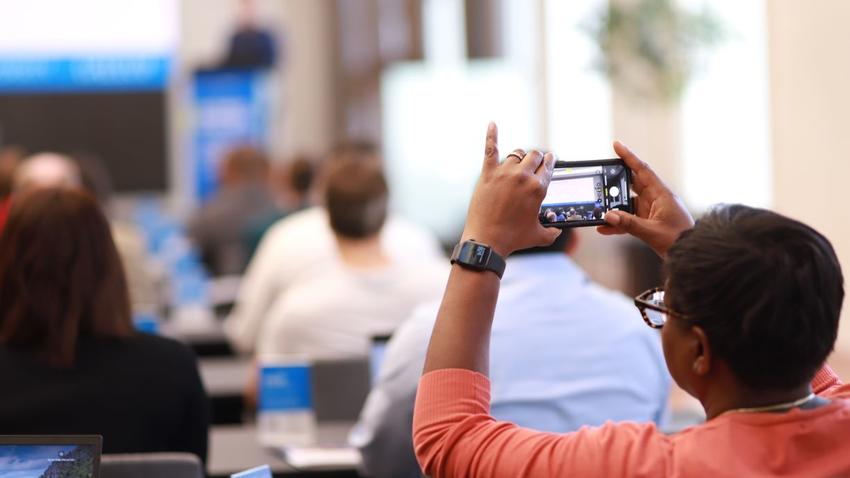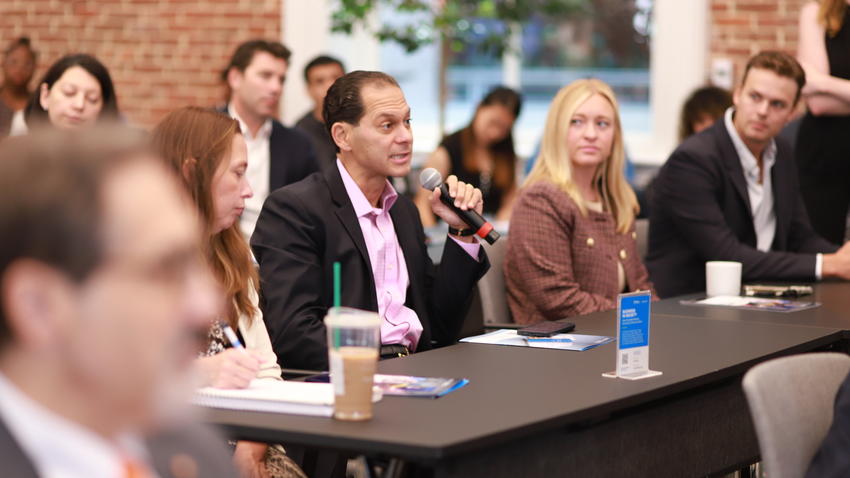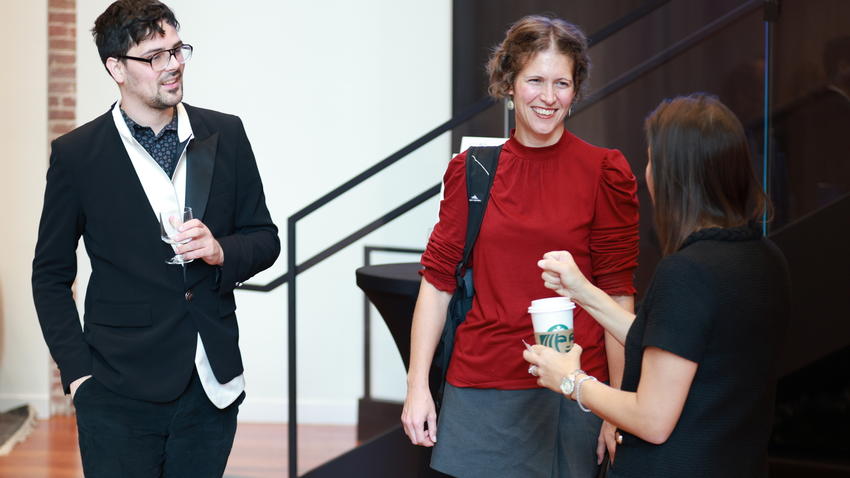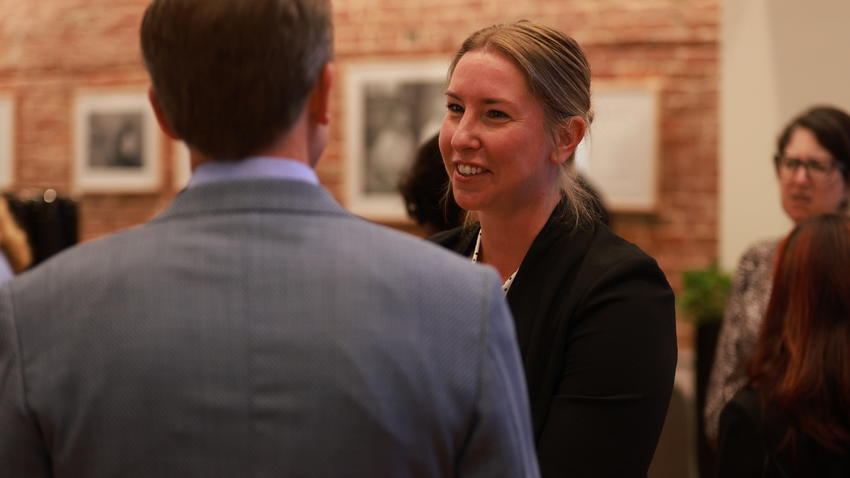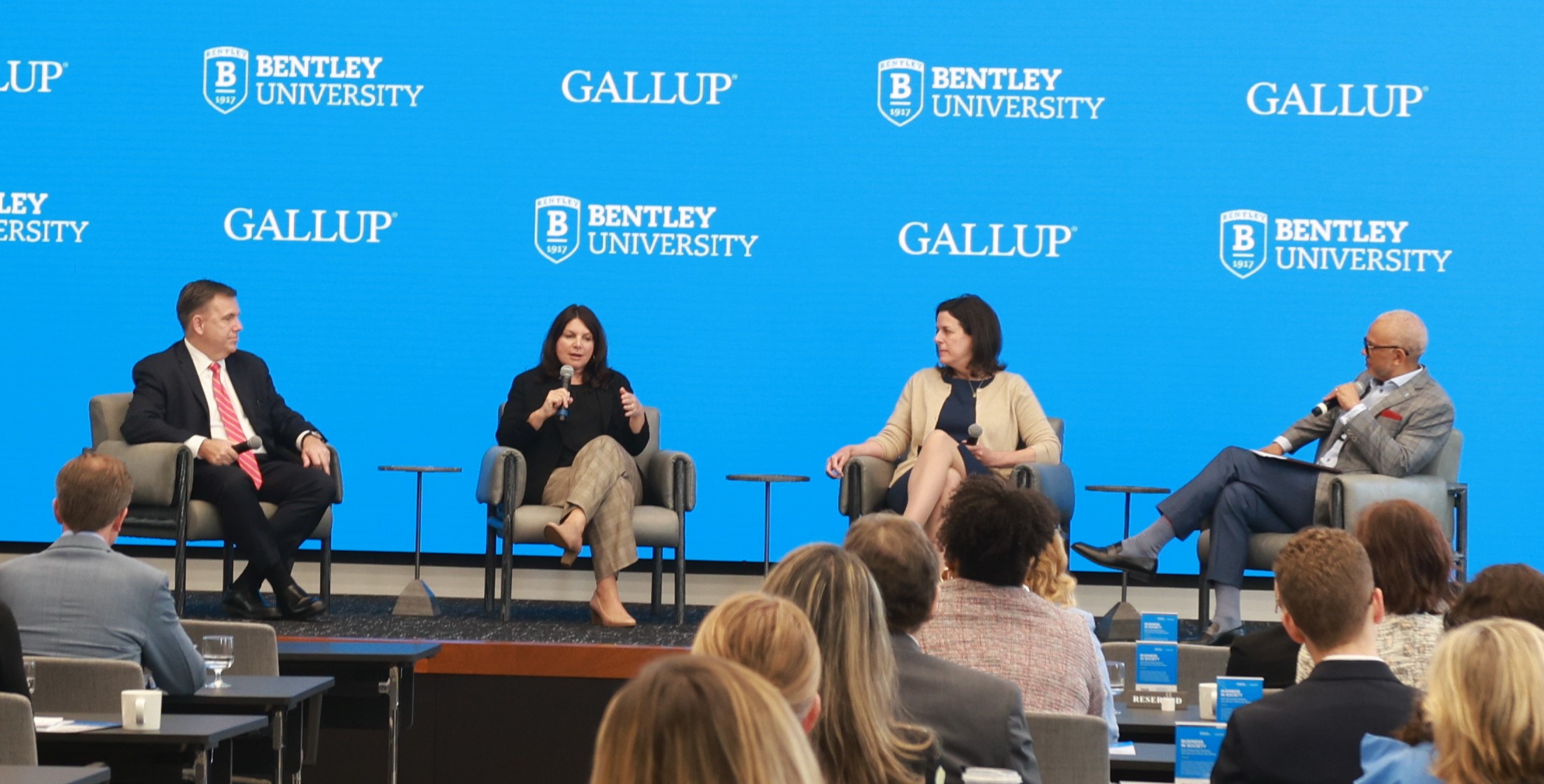
Bentley Takes Survey Partnership with Gallup to National Stage
Less than two months before the presidential election, Bentley University and Gallup brought together a panel of high-profile business leaders to discuss timely topics including Americans’ declining interest in hearing businesses speak out on current events. Thirty eight percent of Americans say businesses should take a public stance on political and social issues, down from 48% in 2022, according to the 2024 Bentley-Gallup Business in Society Report. The survey found that only 17% of Americans want to hear from businesses about which candidates they support. The report, which also covered Americans’ thoughts about artificial intelligence and businesses’ approach to diversity, equity and inclusion, provided the basis for a lively panel discussion with executives from Citi, Hologic and the U.S. Chamber of Commerce Foundation.
The event was moderated by Bentley President E. LaBrent Chrite and marked the extension of the successful Bentley-Gallup partnership to a national stage: Gallup’s headquarters in Washington, D.C. It was attended in person and online by nearly 150 corporate executives, nonprofit leaders, students and government officials.
The survey results can help businesses understand Americans’ views at a time when people are nervous about AI and other technologies, and society is divided by a tense political climate.

“Businesses often seem to be caught in the middle of it all, navigating disruptive social and political trends while responding to the expectations of the American public — the same people who are their customers, stakeholders, employees and shareholders,” Chrite said. “In times like these, the first and most important steps a business leader can take are to ask questions, to listen and to learn ... Americans want more from business.”
The Bentley-Gallup Business in Society Report, now in its third year, surveys more than 5,000 adults across America each year on topics such as how companies can build trust in their use of artificial intelligence, what job-seekers value in choosing an employer, and how companies can change their policies to improve their employees’ well-being.
In introductory remarks, Gallup CEO Jon Clifton highlighted results from the survey, including that most Americans want companies to speak out on climate change, DEI and mental health. He noted concerns in the survey about how businesses impact the environment, but when it comes to their overall impact, a clear majority — 63% of Americans — believe that businesses have a positive impact on people’s lives.
“There’s a lot more in this report, and we’re hoping that business executives everywhere consume it, because it’s what your customers, your suppliers and your employees are thinking,” Clifton told the audience. “For the business community to be strong, we need to build back trust.”
The panel participants included: Brandee McHale, head of Community Investing and Development at Citi; Julie Khani, vice president of Government Affairs and Corporate Communications at Hologic; and Marc DeCourcey, senior vice president at U.S. Chamber of Commerce Foundation.
Americans’ shifting views on corporate activism was a key topic, and the panelists agreed that listening, knowledge and authenticity should inform if and how a company speaks out. DeCourcey shared his approach to DEI, an issue that a majority of Americans do want to hear about, according to the survey findings.
“Part of it is to find consensus, and you don’t get that by not listening,” said DeCourcey, who noted that the U.S. Chamber’s members range from small businesses to global corporations. “We listen to the companies and figure out not only what their needs are but what are the needs of the people they’re trying to help. One of the biggest challenges is how you get it from large companies — like Citi and Hologic — to smaller businesses because they’re the other half of the workforce. They’re small, but collectively they’re big.”
When Chrite asked whether recent moves by some major companies to step back from DEI commitments reflected a growing trend, McHale challenged the idea.
“The bigger issue that we’re facing at this moment in our country now more than ever is this idea that for someone to win, someone has to lose,” McHale said. “I’m hoping that this crisis is actually going to be a moment where we begin to see that this is not just something for large academic institutions or large corporations but that all small businesses across the country, all communities across the country need to grapple with this, and I hope we’re actually going to come out of this with a different framework and a different way of thinking about it.”
59% say companies with a diverse workforce are more profitable
The issue of workplace flexibility including a four-day workweek and hybrid remote/in-office work schedule provoked a flurry of responses.
“Flexibility is different for different people,” Khani said, noting how her own definition of flexibility had changed from earlier in her career when she left promptly at 5 p.m. to spend time with her children before bedtime to now when she sometimes takes time to care for her elderly parents. “Is it flexibility or is it safety — or a certain degree of trust? Maybe what we all want is that feeling of ‘my company knows that I’m going to do a good job, and they know I’m going to do my work, but the way in which I need to do it is different from others — and it may change.’”

AI is another area that employers are closely monitoring. The Bentley-Gallup survey found that 77% of Americans do not trust businesses to use AI responsibly, but 57% say they’d be less concerned if businesses were transparent about how they use it. Chrite asked the panelists how to navigate that.
“AI in business is the great equalizer,” DeCourcey said, noting reports in which small business owners said AI would save them money and time and make them more competitive with larger companies. “That’s a recipe for success and for growth of the business sector at large.”
McHale said changing technologies have changed the requirements for how businesses choose their leaders. It’s no longer enough for companies to identify executives who are really good at one thing, she said. They must be able to think “big picture” and quickly adapt to complex, changing situations.
“Institutions like Bentley are a critical piece of the puzzle here,” McHale said. “We have got to be creating a next generation of leaders who have the skillset to be able to make these kinds of decisions.”
